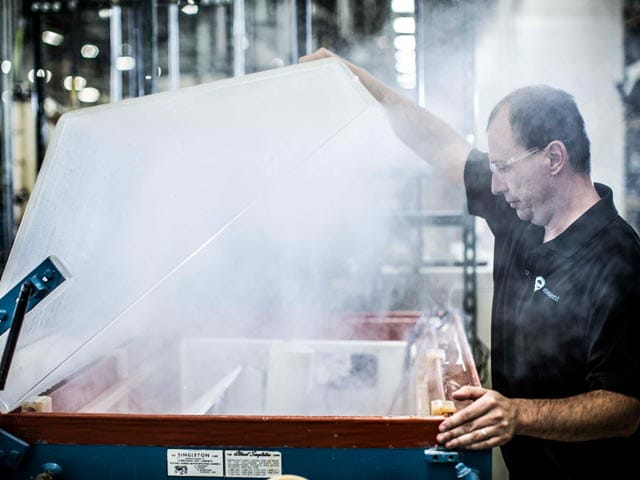Get to market faster without compromising quality, with Element’s salt spray testing services. By simulating high-saline environments, we accurately measure corrosion resistance; ensuring reliable results that reflect real-world conditions and variability. Avoid risk to your own team and the environment, whilst guaranteeing regulatory compliance.
What is salt spray testing?
A salt spray test is a corrosion testing method that uses high-saline environments to measure the corrosion resistance of products, paints, and coatings over extended periods. This accelerated process applies a 5% NaCl (sodium chloride) solution to coated or painted marine, automotive, and military equipment. For projects with specific requirements, we can adjust environmental conditions like temperature and humidity to simulate different climates or working conditions. Samples are checked regularly to monitor corrosion levels, noting milestones such as white and red rust development or coating degradation. Our labs provide detailed test reports with with before-and-after photographs, calibration data, time/date records, and Element's certifications.
Benefits of salt spray testing with Element:
- Accuracy and Reliability: Our services ensure minimal variability in test conditions, accurately reflecting real-world performance and providing dependable results.
- Cost Efficiency: Save on equipment and maintenance costs by leveraging our state-of-the-art testing facilities.
- Global Reach and Timely Results: With accredited labs across the Americas, Europe, Middle East, Africa, and Asia, we deliver timely results, ensuring that your projects stay on track regardless of geographical location.
- Compliance Assurance: With a global platform of ISO 17025 and NADCAP accredited laboratories in the United States, UK, Europe and Asia, Element offers ASTM B117 salt spray testing to support a wide range of regulatory standards and testing requirements in many industries including Oil & Gas, Aerospace, Military and Automotive industries.
- Customized Environmental Conditions: We tailor testing parameters such as temperature, humidity, and salt concentration to replicate specific climates or working conditions, providing accurate simulation and assessment.
- Detailed Reporting with Element Analysis: Receive comprehensive test reports, including pictures and descriptions at each stage of testing, enhanced with detailed element analysis if required, facilitating informed decision-making.
- Expert Guidance and Support: Benefit from the expertise of our corrosion specialists, who can assist in selecting the most appropriate test methods for various coating types, including electroplated copper-nickel-chromium, electroplated copper-nickel, and anodized aluminum.
- Alternative Methods: When routine testing isn’t enough, Element offers alternative salt spray test methods to cover a variety of conditions. For large or unusually shaped components, our largest chamber is 8’H x 8’W x 10’L, and can reach temperatures of up to 55°C.
Navigating complex salt spray testing procedures
Dealing with complex testing procedures and parameters can be daunting, especially when trying to replicate specific environmental conditions accurately. We simplify the testing process by offering customizable environmental conditions tailored to your requirements. Whether it's adjusting temperature, humidity, or salt concentration, we ensure that the testing conditions accurately replicate real-world scenarios. This simplifies the testing process for you while providing precise and reliable results.
Overcoming time-consuming testing processes with salt spray testing
Lengthy testing processes can delay product development and time-to-market, impacting your competitiveness and bottom line. With our global network of accredited labs and efficient testing procedures, we deliver timely results without compromising on accuracy. Our streamlined processes ensure that your projects stay on schedule, enabling you to meet deadlines and maintain a competitive edge in the market.
GMW 3172 salt spray testing
Used heavily in transportation design validation, GMW 3172 testing helps ensure the durability and functionality of electronic components in corrosive environments. We can support programs with virtually any condition listed in the standard, including environmental conditioning and functional tests. GMW 3172 testing provides data about how electronics and exposed surfaces will fare in salt-heavy environments, including coastal areas and winter-treated roads. With years of experience in both automotive testing and corrosion studies, our experts can help you design a GMW 3172 test program that conforms to test requirements while meeting your product’s unique needs.
Alternative salt spray test conditions
Alternative salt spray testing can simulate a variety of corrosive environments to ensure the integrity of a product. Some of our capabilities include:
- Neutral salt spray (NSS)
- Acetic acid salt spray (ASS)
- Copper-accelerated acetic acid salt spray (CASS)
- Calcium chloride (CaCl₂)
- Synthetic seawater testing
- Hydrogen induced cracking (HIC)
- Custom cyclic corrosion testing
Why choose element?
At Element, we stand out as industry leaders in corrosion testing, offering unparalleled expertise and resources to meet your needs. Our commitment to excellence and customer satisfaction makes us the preferred choice for salt spray and salt fog testing.
We support salt spray tests for a variety of products and applications, and our corrosion experts are highly trained across multiple disciplines. With a global platform of accredited, high-capacity labs in the in the Americas, Europe, Middle East, Africa and Asia, we help ensure that your projects are accurate, on-time, and within budget.
For more information about our salt spray/fog testing services or to request a quote, Speak to an expert today.
Related Services
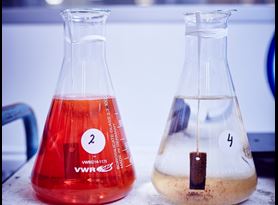
Corrosion Testing Services
Find out about Elements extensive corrosion testing expertise in the Energy industry across a global network of laboratories.
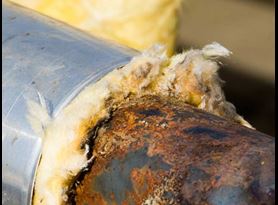
Corrosion Under Insulation (CUI) Testing
Element supports clients to assist in evaluating solutions to try and mitigate corrosion under insulation (CUI).
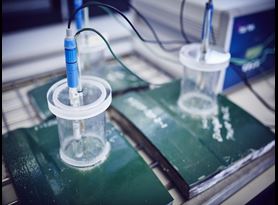
Sour Service Corrosion Testing
Find out about Element's sour service corrosion testing services for evaluating how equipment and materials will hold up in environments rich in hydrogen sulfide and other caustic gases.
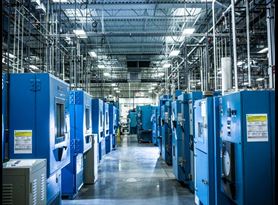
Climatics and Environmental Simulation
Element can provide you with critically important data on your product or part's performance in response to typical or extreme environmental conditions.
